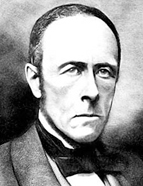

When viewed together with the texts on which it was largely inspired, such as the Lettres sur l'histoire de France (1820; 1827) of Thierry, a Saint-Simonian, and the Histoire de la civilisation en Europe (1828) of François Guizot, the synchronic part of História de Portugal is, nonetheless, a good record of how, in the first half of the 19th century, very important writers refused to understand the writing of history as an “exclusive narrative of two weddings, four funerals and six battles” (Herculano, “Apontamentos” [“Notes”], 217). Therefore, they do not fit in the model of “historiographical positivism” -, a term often misused even nowadays for the overall characterisation of 19th-century history writing.
Herculano, who once defined himself as a “steadfast bourgeois” and “staunch liberal” (Cartas, II, 221), wished to offer a history of the third state in Portugal (or, to be more precise, of the privileged segment of that social cluster) in História de Portugal and in his other writings around this theme. To this end, he highlights the political and geographical location where the bourgeoisie came to prevail, that is, the municipality –which, he states, quoting Alexis de Tocqueville, appeared “to have come directly from the hand of God” (História de Portugal, IV, 33-34). In fact, municipalism lies at the very heart of these identifications, the echoes of which simultaneously impact the ways of feeling the past, intervening in the present and looking to the future. This is a fundamental key to understanding Herculano’s political world view. His focus on the Portugal of medieval councils derives from the reasoning that the experiences and inspirations that would best serve the agenda of the liberalisation of politics and social relations lay therein; an agenda with which, obviously departing from the present, an attempt to shape the future would be made. Herculano hoped for a gradual dissolution of the centralist order bequeathed by absolutism and the annulment of its drive to mechanically generate abrupt historical caesurae. He envisaged a political order that would guarantee individual freedoms and legal equality, to be implemented without having to pay the price of revolutionary violence. (História de Portugal, IV, 343; “Instrução pública” [“Public instruction”], 87). With strengthened local powers, that is, if the councils could be galvanised into action, it would be possible to proceed with an organic, gradual, and peaceful amplification of freedom and equality (Ledesma, “Las plumas”, 195-200). In Herculano’s view, these were the paths that Portuguese history had taken, with some degree of success, until the advent of absolutism, and to which it was necessary to return. To a certain extent, História de Portugal was planned to work on its readers like a railway signal box which would keep national politics on track.
